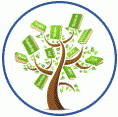At Kingsfield, we understand that mathematical language is crucial to children’s mathematical thinking so we introduce new words from the curriculum in a suitable context, with relevant real objects, mathematical apparatus, pictures and/or diagrams, explaining their meanings carefully. Key vocabulary used in a unit of work are displayed on the Maths working walls to embed this vocabulary but also to ensure it is accessible at all times.
All children need regular, planned opportunities to develop their mathematical vocabulary in order that they become familiar with the language and are not confused by mathematical terms. They need to acquire the words necessary for them to take part in lessons and activities, respond to questions correctly and carry out tasks successfully.
In most lessons children work in pairs; discussing, explaining, disagreeing and proving maths ideas as we believe these are integral to building understanding. Children work together so that through their dialogue they can develop a much stronger understanding.
Effective questioning
Whilst children may be able to remember new terms, learning the meanings of words requires more than memorisation. To help children understand mathematical ideas and support them in using mathematical terms correctly, it is vital to employ a variety of questioning techniques to promote good dialogue in mathematics lessons. As teachers, we should be asking a variety of types of question. Effective questioning will include both closed questions with a single correct answer (What sort of number do you get when you add two odd numbers together?) and open questions with a number of possible answers to encourage children to think more deeply (What sort of numbers do you get when you add three consecutive numbers together?). Encouraging children to explain their thinking and methods is also vitally important. The answers given will provide teachers with useful assessment opportunities and evidence of children’s level of understanding. Follow-up questions such as How do you know? or What makes you think that? as well as Can you give me another example? are essential to probe, develop and consolidate understanding.
Planning open questions that have more than one answer or more than one route to arrive at an answer, gives more children a chance to respond and embed the vocabulary that they have been taught. Open questions can also offer greater challenge and extension opportunities for higher-attaining children, encouraging them to search for alternative, less obvious or more general answers.
Useful question starters
When planning open questions, the following question stems and sentence starters can be helpful:
- Explain why ...
- I wonder why ...
- How do you know ...?
- Does anyone know ...?
- What will happen if ...?
- How will you know ...?
- How can we find out ...?
- Can you describe ...?
- Convince me ...
- Is there another way ...?
- What makes you think that ...?




